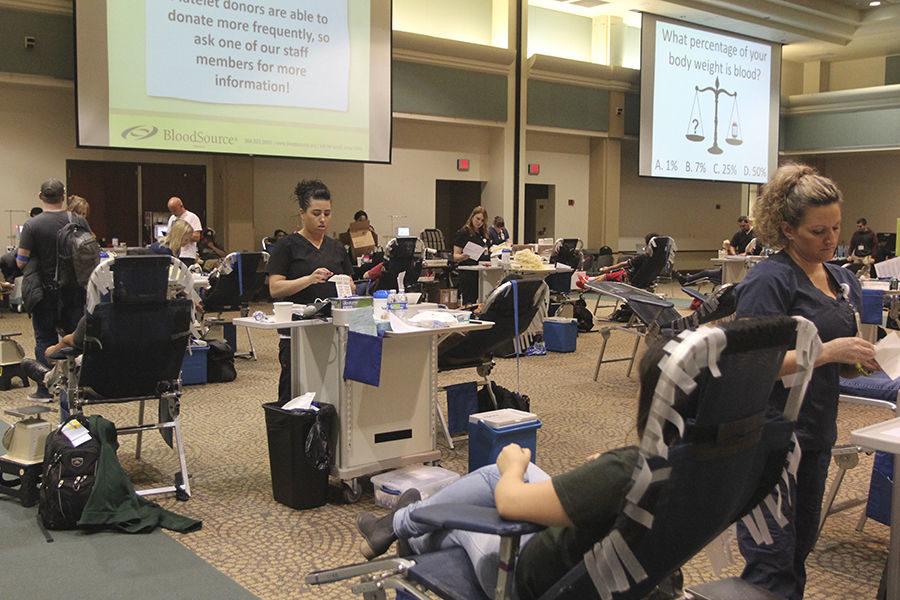Sac State holds blood drive
February 18, 2016
BloodSource hosted one of it’s biannual blood and bone marrow drives on campus on Feb. 16 and 17.
The main drive is held in the fall semester as a competition with UC Davis and is known as the “Causeway Classic.”
Students who meet the eligibility requirements were able to donate a pint of blood or register to be a bone marrow donor.
“Out of the whole United States, only 38 percent of people can donate, and of that 38 percent, only 10 percent donate,” said Ian Finch, an account manager with Bloodsource.
On Feb. 16, Bloodsource almost met their goal of around 500 individuals coming to donate, with around 411 people showing up, Finch said.
“One in seven people that end up going to a hospital will actually end up receiving a blood transfusion,” Finch said. “Blood is always in demand, and it’s something that we can’t create yet, so we rely on people to do that.”
Students came out the event for all different reasons. Jessica Vang, a sophomore at Sacramento State, said she wanted to do it for the experience and the high chance of actually saving someone’s life.
“Giving a pint of blood won’t kill you,” Vang said, “It’s not as bad as I thought it was going to be.”
Samantha Butler, a senior kinesiology student who has donated a handful of other times, said she does it because one bag of blood can help around three people.
“It only takes about 30 minutes to save a life,” Butler said. “To be honest, the prick to my finger was the part that hurt the most.”
The blood drive also offered an opportunity to help for those who could not donate themselves. Members from many different organizations volunteered their time to the event, handing out flyers, manning the snack station, and sharing important information with other students.
Senior deaf studies major Brittany Dykes said the reason behind giving her time to the drive was close to home.
Her mom is currently on dialysis for kidney failure and as a result of medical procedures has needed to receive blood transfusions, Dykes said.
“If I can’t do it, I want someone else to do it,” Dykes said. “[Blood donations] are important to so many people.”





























































































































